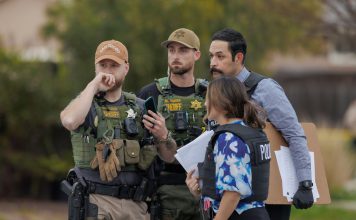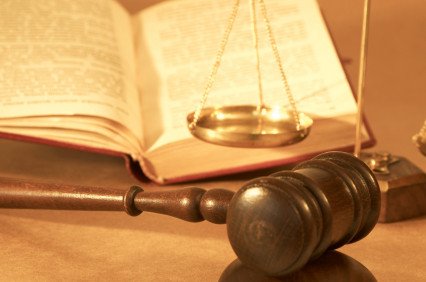The night before New Orleans played at San Francisco in an NFL divisional playoff game in January, Saints defensive coordinator Gregg Williams gathered his players for a pep talk at the team hotel.
In a 12-minute, obscenity-laced diatribe, Williams instructed them to injure specific 49ers, urging them to aim for the head of quarterback Alex Smith and the surgically repaired knee of Michael Crabtree, saying the star receiver “becomes human when you (expletive) take out that outside” ligament.
Of the 49ers’ Pro Bowl running back, Williams said: “We’ve got to do everything in the world to make sure we kill Frank Gore’s head. We want him running sideways. We want his head sideways.”
The NFL has already imposed sanctions on the Saints, including an indefinite suspension of Williams, who is now with the St. Louis Rams. But the audiotape – released Thursday by documentary filmmaker Sean Pamphilon – illustrates, in graphic detail, the coach’s cavalier attitude toward intentionally injuring opponents.
The tape emerged Thursday as Sean Payton, the Saints’ head coach, was at league headquarters in New York to appeal his one-year suspension to NFL Commissioner Roger Goodell. Earlier Thursday, Goodell heard the appeals of Saints General Manager Mickey Loomis and linebackers coach Joe Vitt, who were suspended for eight and six games, respectively.
The three-year investigation of the Saints by the NFL _ a span that included their Super Bowl victory in the 2009 season _ determined that cash bounties were placed on four opposing quarterbacks: Minnesota’s Brett Favre, Carolina’s Cam Newton, Green Bay’s Aaron Rodgers and Arizona’s Kurt Warner.
Typically, the Saints’ bounty system paid players $1,000 for causing an opponent to be carted off the field, and $1,500 for knocking out an opponent.
In addition to the suspensions, the league stripped the Saints of second-round draft picks in 2012 and 2013, and fined the franchise $500,000. Goodell is still weighing individual player penalties for those involved in the scandal.
Pamphilon’s recording was posted on his website and YouTube one day after the Louisiana legislature passed a resolution saying that the NFL’s penalties were too harsh and should be reconsidered.
Pamphilon was allowed to sit in on the team meeting before the San Francisco game because he was working on a documentary on Steve Gleason, the former Saints special-teams standout now suffering from Lou Gehrig’s disease.
The Saints thought Pamphilon had planned to keep the recordings private. New Orleans safety Malcolm Jenkins on Thursday called the filmmaker “a coward” on Twitter, saying Pamphilon “should be ashamed for taking advantage of Steve Gleason!”
In a statement on his website, Pamphilon described Williams in a similar way.
“It’s a cowards play (sic) to send someone off to do your malicious bidding,” he wrote. “I’m sure many of his players would have told him this if they weren’t scared to lose their jobs or (look bad) in front of their teammates. Or if they weren’t 25 and couldn’t possibly have a fully developed perspective on life.”
The bombastic Williams is known for talking tough, and in the past spoke with pride of bringing nastiness to his defenses even if it meant crossing the boundaries of fair play.
According to the audiotape’s subtitles, Williams rubbed his fingers together to indicate “money” when directing his players to aim for quarterback Smith’s chin.
Williams also told his players to “put a lick on” 49ers receiver Kyle Williams, who had suffered a concussion a few weeks earlier. “We’ve got to find out in the first two series of the game, the little wide receiver, No. 10, about his concussion,” the coach said.
There is no specific mention of bounties. However, Williams has admitted guilt for his role in the so-called pay-for-performance program.
The league had issued a stern warning to the Saints a week earlier. Goodell said he sent the NFL’s top lawyer, Jeff Pash, and Jeff Miller, the league’s security director, to New Orleans to meet with Saints owner Tom Benson the day before a first-round playoff game against Detroit.
“The point was to make it clear to him that we had new and credible information that a bounty program may exist, and that he should make it extremely clear, beginning with the game the next day, that there should be no bounty system in place while our investigation continues,” Goodell said last week at the owners’ meetings. “We do not want to put our players at risk, and that was the message.
“Our point was, if there is one, you’d better make sure it’s not in effect.”
Even some longtime NFL veterans were surprised by what they heard from Williams.
“I saw that and I said, ‘Whoa, wait a minute now,’ ” said Hall of Fame tackle and former Raiders coach Art Shell, who now works for the league hearing player appeals. “You’re dealing with the integrity of the game. I would like to say 99.9 percent of the players in this league would not be involved in that type of thing.
“I may be naive, but I’d like to believe that players would not want to be involved in those types of tactics.”
San Francisco ended the Saints’ season with a 36-32 victory, but there are indications that 49ers receiver Williams may have also been a target in the team’s next game, the NFC championship against the New York Giants.
Williams committed two costly turnovers, pivotal plays in the Giants’ overtime victory, and afterward two New York players admitted they knew about Williams’ history of concussions and said part of their strategy was to use that to their advantage.
“He’s had a lot of concussions,” said Devin Thomas, who recovered a muffed punt and a fumble by Williams. “We were just like, ‘We gotta put a hit on that guy.’ ”
Thomas told the Newark (N.J.) Star-Ledger after the game that Giants safety Tyler Sash “did a great job hitting (Williams) early and he looked kind of dazed when he got up. I feel like that made a difference and he coughed it up.”
Goodell has said the bounty investigation is continuing and the league would pursue any new information. The league had no immediate comment on the release of the Saints’ audiotapes.
In his speech, Gregg Williams emphasized more than once that members of his defense should “never apologize for the way we compete.”
The coach apologized to the league only weeks later.












